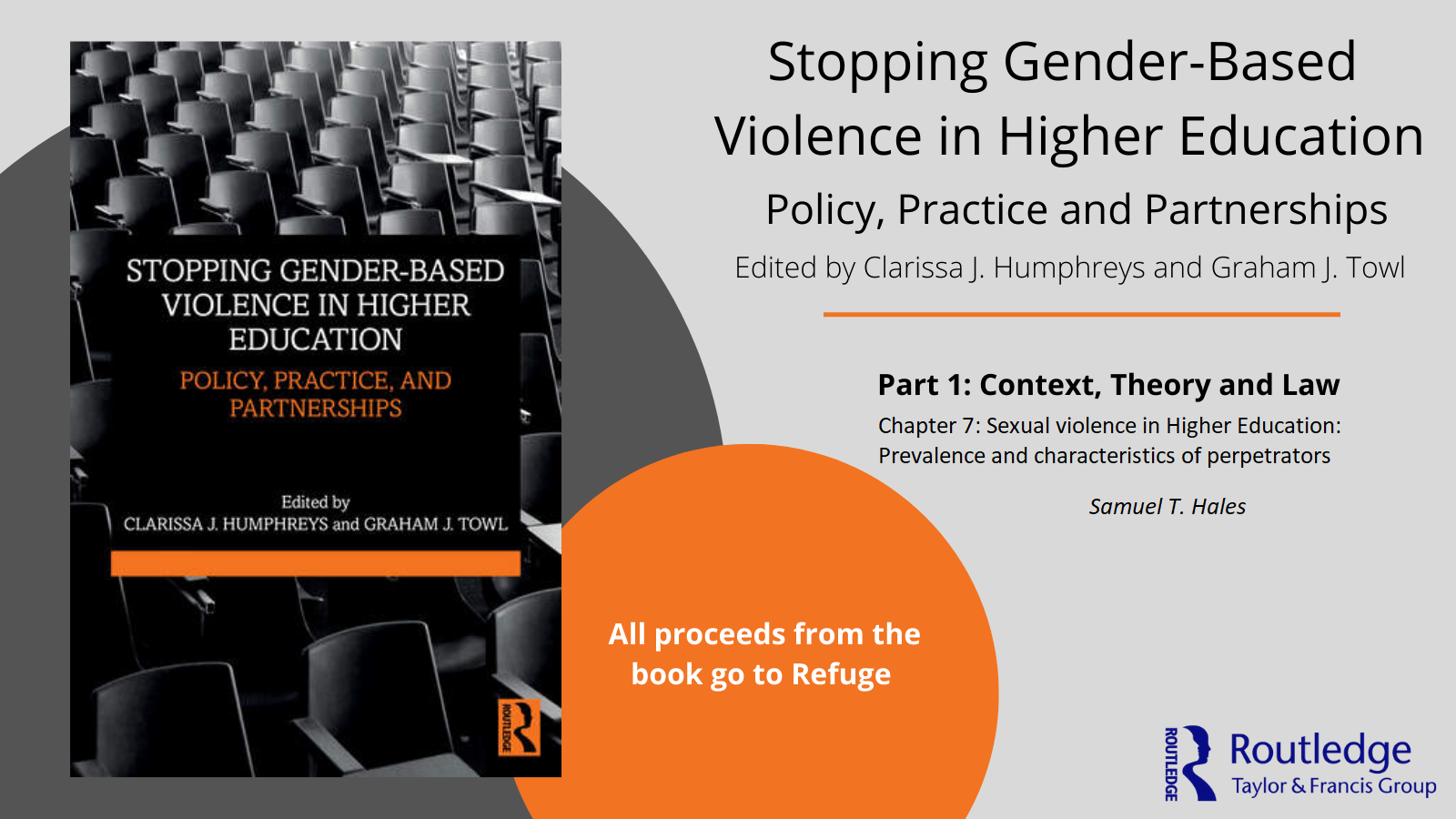Samuel T. Hales, a PhD candidate in the Centre of Research & Education in Forensic Psychology (CORE-FP), has recently published a book chapter that empirically examines the breadth and scope of sexual violence perpetration on university campuses internationally, as well as the characteristics of known and potential student and staff perpetrators. The chapter, published in Routledge’s newly-released Stopping Gender-based Violence in Higher Education: Policy, Practice, and Partnerships, provides one of the most comprehensive overviews of university-based sexual violence perpetration in recent years and acts as a helpful guide for university leaders seeking to understand more about the causes and possible remedies for sexual violence on their campuses. In discussing recent scientific advances in the field, the chapter presents data from cutting-edge research conducted by academics across the globe to offer readers a contemporary assessment of the sexual offending behaviours of students and staff across the Higher Education sector.
In providing one of the most up-to-date reviews of sexual violence perpetration in Higher Education, it is hoped that this book chapter will help guide university policymakers and administrators to develop more robust and evidence-based strategies to tackle rising rates of sexual assault on campuses nationwide. This includes more rigorous policies and procedures that actively discourage members of the university community from committing sexual offences, as well as tailored primary prevention interventions that seek to engage potential perpetrators in campus safety efforts and reduce their proclivity towards gender-based violence (GBV).
The book brought together several of the UK’s leading harm prevention experts to provide one of the most comprehensive assessments of GBV on university campuses to date. Contributors included distinguished academics, activists, practitioners, and university administrators, as well as several PhD researchers who are pushing at the limits of academic knowledge daily to help make Higher Education a safer place for students and staff to live, learn, and work.

